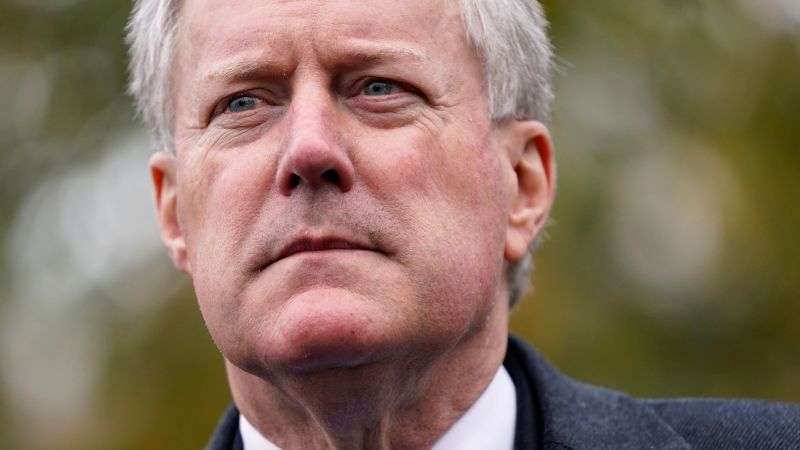Federal Judge Rejects Efforts to Avoid Arrest in Georgia Election Subversion Case
A federal judge has denied the requests of former Trump White House chief of staff Mark Meadows and ex-Justice Department official Jeffrey Clark to avoid arrest in the Georgia election subversion case. The judge declined their emergency requests to move the prosecution to federal court and avoid processing in the case. Meadows and Clark are among the 19 defendants facing charges brought against former President Donald Trump. The judge stated that there is no legal basis to support their requests and that they should face the same process as any other criminal defendant. The Fulton County District Attorney’s office also argued against their requests, emphasizing that other defendants have already surrendered. The judge described Clark’s legal claims as “unusual” and rejected his bid to move the case to federal court. The judge also dismissed Clark’s argument that the special grand jury used in the investigation was a civil entity. The pending indictment against Clark is exclusively criminal, according to the district attorney. The judge concluded that the inconvenience of securing a flight to Atlanta is not sufficient justification to halt the state felony criminal prosecution.
Title: Judge Rules: Mark Meadows and Jeffrey Clark Face Arrest in Georgia Election Subversion Case
Introduction:
In a significant development in the ongoing investigation into the alleged subversion of the 2020 Georgia election, a federal judge has ruled that former White House Chief of Staff Mark Meadows and former Acting Assistant Attorney General Jeffrey Clark will face arrest. The ruling comes as a result of mounting evidence suggesting their involvement in efforts to overturn the election results in Georgia. This article delves into the details of the case, highlighting the implications of this ruling and the potential consequences for those involved.
Background:
The 2020 presidential election witnessed unprecedented scrutiny and controversy, with baseless claims of widespread voter fraud circulating widely. Georgia, a key battleground state, became a focal point of these allegations. Despite multiple recounts and audits affirming the integrity of the election, certain individuals allegedly sought to undermine the democratic process.
The Allegations:
Mark Meadows, who served as Chief of Staff to former President Donald Trump, and Jeffrey Clark, a former Acting Assistant Attorney General, have been accused of engaging in a concerted effort to subvert the election results in Georgia. The evidence against them suggests that they conspired to pressure state officials to overturn the outcome in favor of Trump, despite the absence of any substantial evidence of fraud.
The Ruling:
In a significant blow to Meadows and Clark, a federal judge has ruled that they will face arrest in connection with their alleged involvement in the subversion of the Georgia election. The judge’s decision is based on the strength of the evidence presented by the prosecution, which includes emails, witness testimonies, and recorded conversations. This ruling underscores the seriousness of the charges and the potential legal consequences for those implicated.
Implications and Consequences:
The ruling against Meadows and Clark carries significant implications for the broader investigation into election subversion. It serves as a clear message that attempts to undermine the democratic process will not be tolerated, regardless of one’s position or influence. This decision also highlights the importance of upholding the rule of law and ensuring the integrity of elections, which are the cornerstone of any democratic society.
If found guilty, Meadows and Clark could face severe penalties, including imprisonment and fines. Moreover, this ruling may encourage further investigations into similar allegations in other states, as it sets a precedent for holding individuals accountable for their actions in attempting to subvert the electoral process.
Conclusion:
The ruling that Mark Meadows and Jeffrey Clark will face arrest in the Georgia election subversion case marks a significant milestone in the ongoing investigation. It demonstrates the commitment of the justice system to uphold the integrity of elections and hold those responsible for any attempts to undermine them accountable. As the legal proceedings unfold, the outcome of this case will undoubtedly have far-reaching implications for the future of democracy in the United States.








